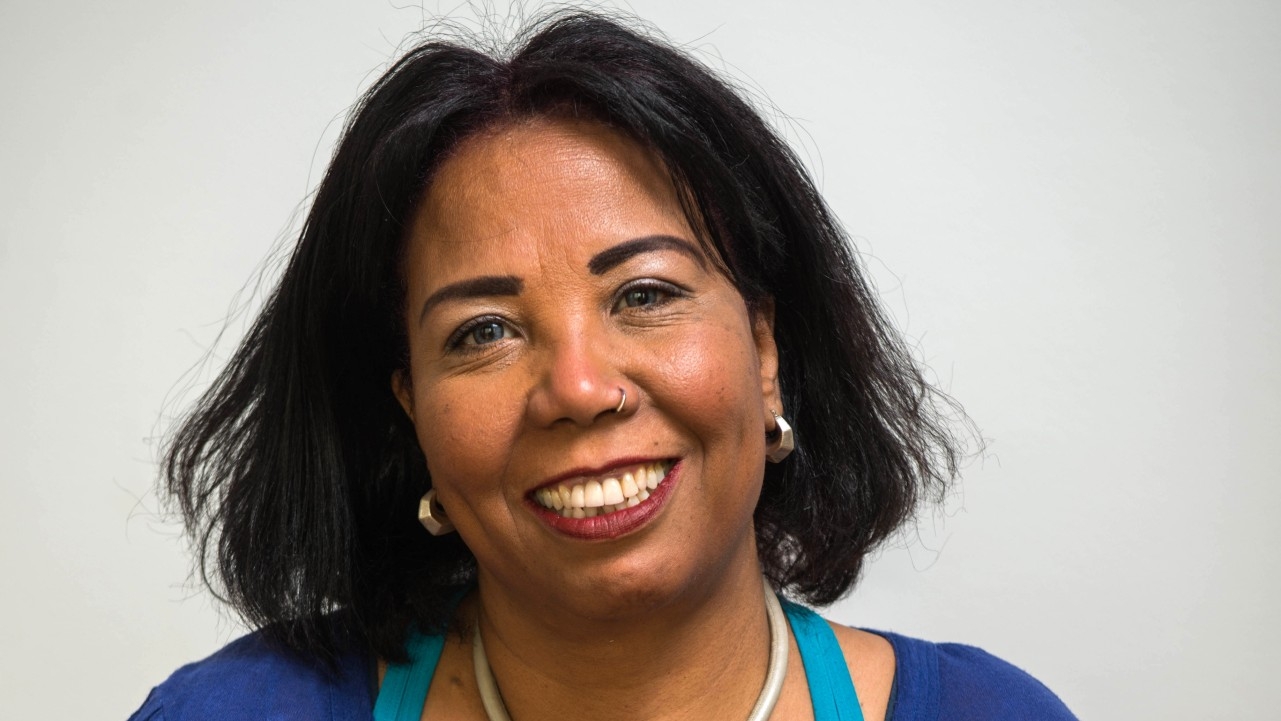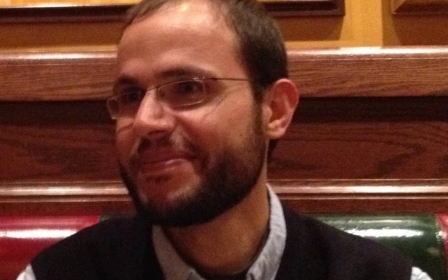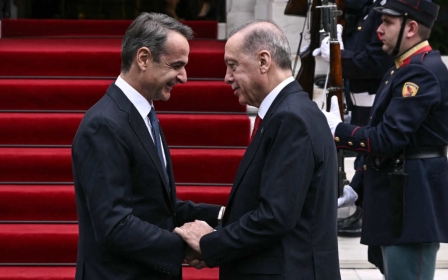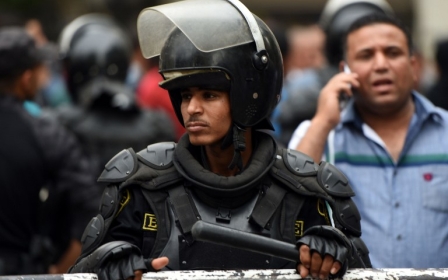Israel-Palestine war: Germany cuts funding for anti-trafficking programme after chair calls for Gaza ceasefire

The award-winning head of an anti-human trafficking programme in Egypt has accused Germany of "double standards" after it withheld funding for the group after she condemned Israel's onslaught on Gaza in a joint letter.
Azza Soliman, a lawyer and head of the board of trustees at the Centre for Egyptian Women’s Legal Assistance (CEWLA), told Mada Masr news website on Friday that the funding stopped at the start of November, and that the anti-human trafficking programme, which was operated by the civil society organisation, was reliant on the funding.
Soliman’s call for an end to Israeli aggression in Gaza was in a joint statement with 254 other NGOs from around the world on 24 October, demanding an end to the hostilities in Gaza and supporting the Boycott, Divestment and Sanctions campaign.
When asked by Mada Masr, the German embassy did not specifically comment on the cessation of funding, but said: “One of our criteria for official funding is that organisations must not affiliate with the BDS movement or otherwise call for boycott against Israel.”
In October, Soliman, a recipient of the Franco-German Prize for Human Rights and the Rule of Law in 2020, publicly denounced the positions of European governments over Israel’s onslaught against civilians in Gaza, in a letter she co-wrote with nine other laureates of the award.
New MEE newsletter: Jerusalem Dispatch
Sign up to get the latest insights and analysis on Israel-Palestine, alongside Turkey Unpacked and other MEE newsletters
Soliman lambasted the German government for their decision to stop funding the anti-trafficking project, saying that she will not be appealing it.
'We are in a decadent and critical historical stage in which the masks are falling off the faces of all supporters of human rights'
- Azza Soliman, lawyer
“We are in a decadent and critical historical stage in which the masks are falling off the faces of all supporters of human rights,” she told Mada Masr, adding that the German government is displaying “double standards,” and is “whitewashing” its history with Jewish people by turning a blind eye to Palestinian suffering.
Soliman is well known for helping victims of torture, arbitrary detention, domestic abuse and rape.
Hossam Bahgat, head of the Egyptian Initiative for Personal Rights (EIPR), said that his organisation would no longer cooperate on development projects with the German government as a result of their decision to stop funding for the programme.
Bahgat has also decided to withdraw his candidacy for the Franco-German Prize for Human Rights and the Rule of Law, whose 2023 recipients are set to be announced on International Human Rights Day, 10 December.
At least 17,000 Palestinians have been killed by Israel since the start of the war on 7 October.
Humanitarian conditions in the besieged enclave have rapidly deteriorated after Israel imposed a full siege on 9 October.
According to a new report by the United Nations World Food Programme, at least 97 percent of households in northern Gaza have “inadequate food” to meet their needs.
The report also found that at least nine out of 10 people are going a full day and night without food in the south of Gaza. Additionally, more than one-third of households are suffering from high to severe levels of hunger.
The heavy bombardment has hampered aid efforts, as the Rafah area was bombed on Thursday.
The head of the medical charity Doctors Without Borders described the situation in Gaza as going “far beyond a humanitarian crisis”.
"It is a humanitarian catastrophe. It is a chaotic situation, and I'm extremely worried that very soon people will be in a mode of just trying to survive, which will come with very severe consequences,” Christos Christou, a doctor, said.
Middle East Eye delivers independent and unrivalled coverage and analysis of the Middle East, North Africa and beyond. To learn more about republishing this content and the associated fees, please fill out this form. More about MEE can be found here.




